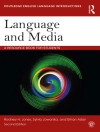Heritage language education is a relatively new field developed as ‘heritage’ has become an important trope of belonging, legitimacy and commodification. Many recent studies treat the ‘heritage language learner’ as an objective category. However, it is a social construct, whose meaning is contested by researchers, school administrators and the students themselves. Based on ethnographic fieldwork in 2007-2011 at a weekend Japanese language school in the United States, this monograph investigates the construction of the heritage language learner at the intersections of the knowledge-power complex, ideologies of language and national belonging, and politics of schooling. It examines the ways individuals become, resist and negotiate their new subjectivity as heritage language learners through becoming objects of study, being caught in nationalist aspirations and school politics regarding what to teach to whom, and negotiating with peers with various linguistic proficiency and family backgrounds. The volume proposes a new approach to view the notion of heritage language learner as a site of negotiation regarding the legitimate knowledge of language and ways of belonging, while offering practical suggestions for schools.
Sobre o autor
Neriko Musha Doerr, Ramapo College, USA; Kiri Lee, Lehigh University, USA.












